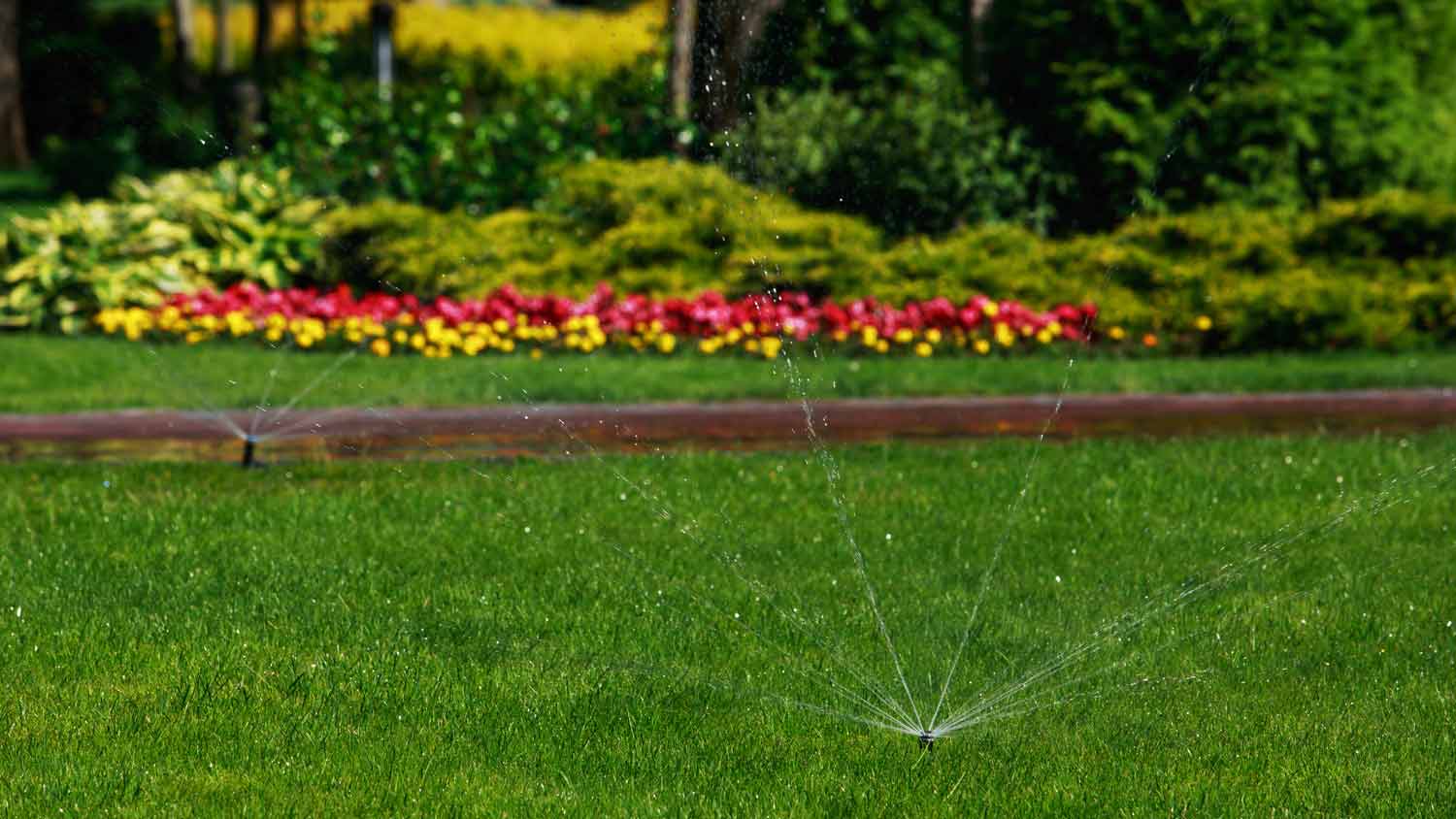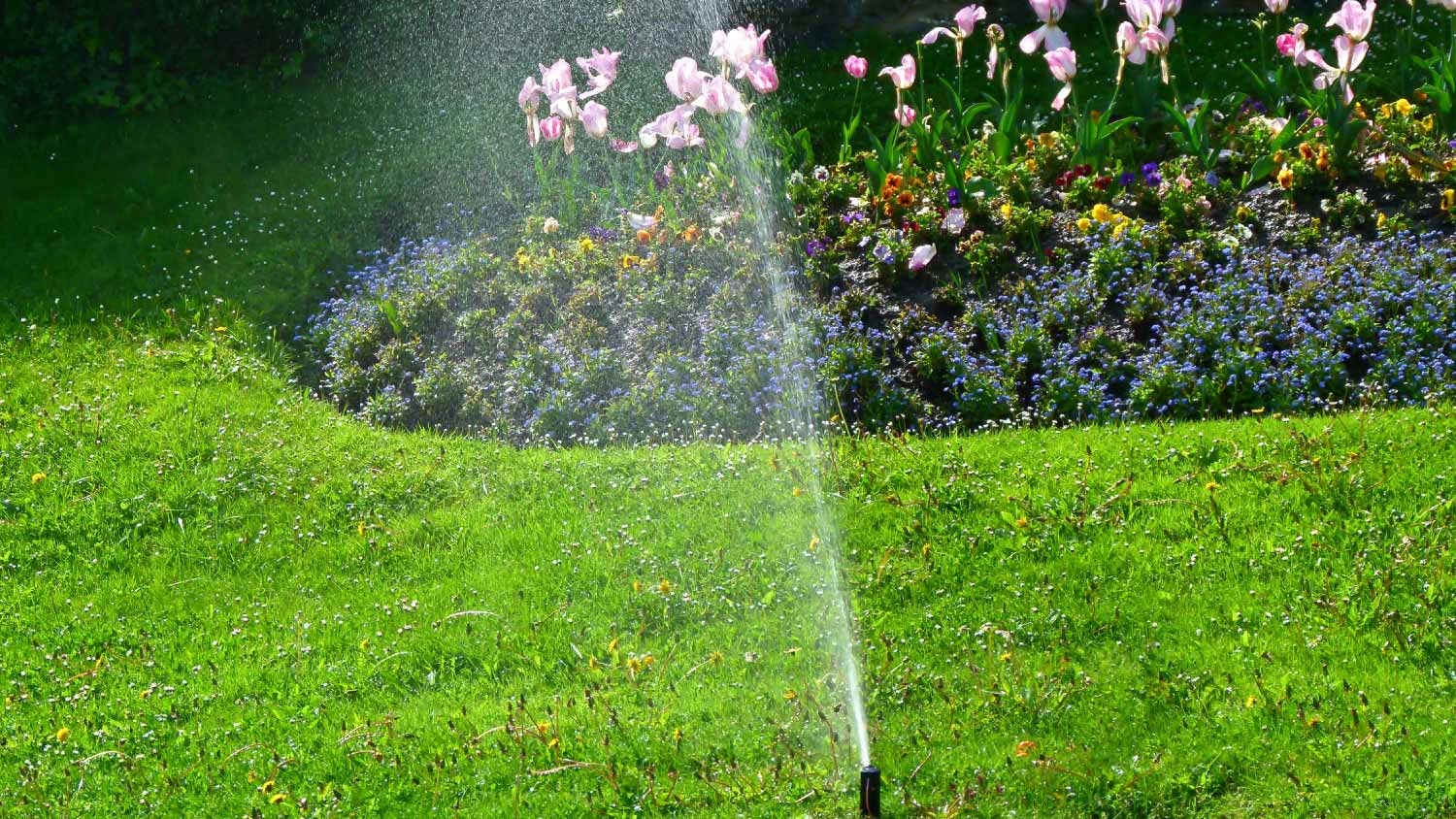Why Does One Sprinkler Zone Have Low Water Pressure?
Get in the zone with this guide to troubleshoot your sprinkler system pressure


Cleaning the sprinkler nozzle head could solve low pressure issues.
Some water pressure issues with your sprinkler will require professional help.
Aging sprinkler systems are more likely to have problems with low water pressure.
A good home sprinkler system means consistent watering without lifting a hand, right? Unfortunately, that’s not always the case. Low water pressure is an annoying irrigation issue that can plague any system for a variety of reasons. Anything from tree roots to leaky lines can be to blame for a sprinkler zone’s low water pressure.
Luckily, solving for low water pressure doesn’t have to be a headache. Read on to learn some common reasons why one sprinkler zone has low water pressure and how to solve it.
1. Open the Valve
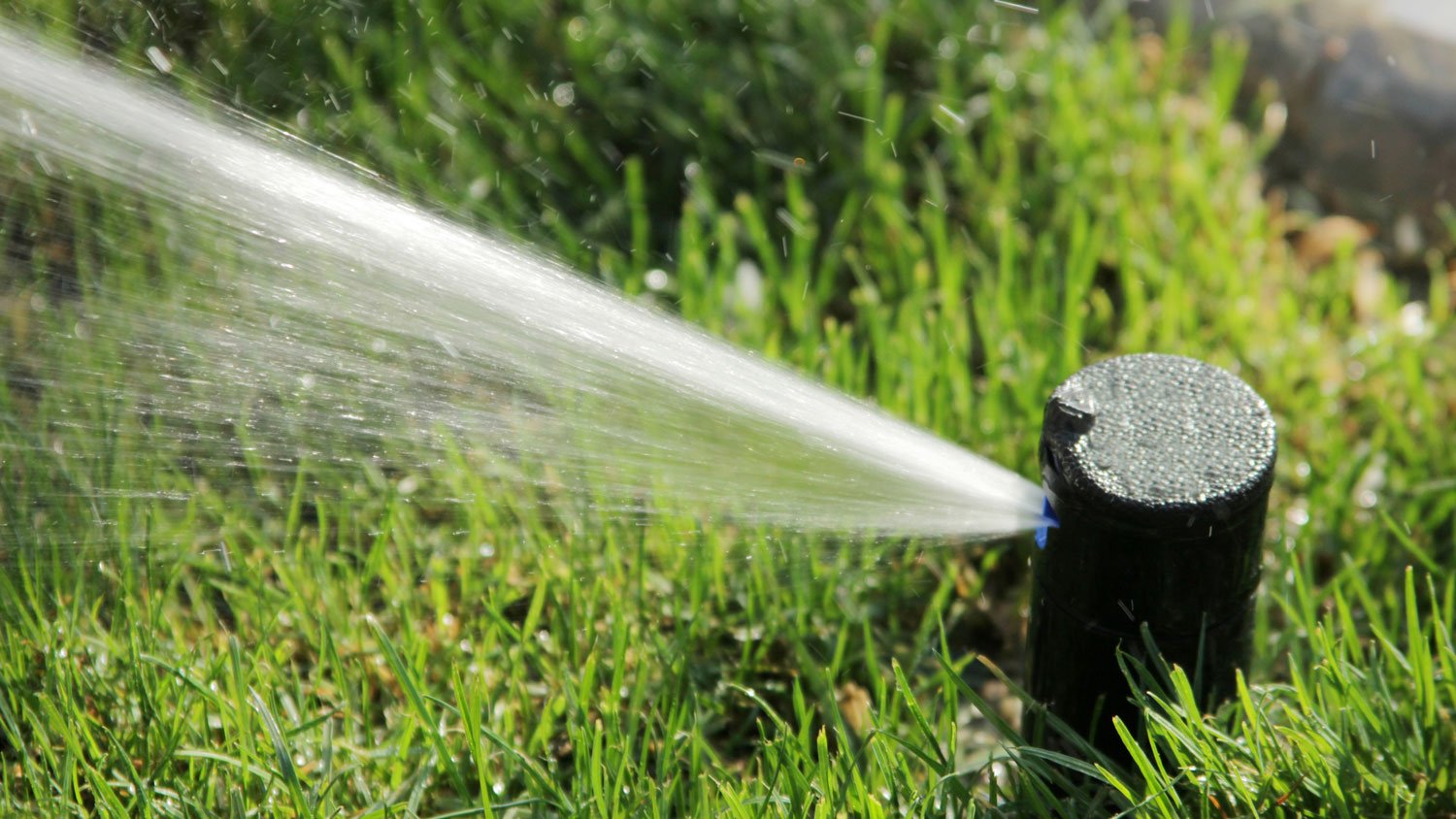
When a sprinkler zone has low water pressure, one of the first things to check is the main valve, sometimes called the shut-off valve. This valve controls the water flow to your entire property. This valve should be totally open to ensure maximum pressure across the sprinkler system.
The Solution
Locate your home's main valve or shut-off valve and check to see if it’s completely open. If not, rotate the valve handle so that it’s parallel to the pipe and fully in the “open” position. Then, check to see if the water pressure improves.
2. Installation Issues
If one sprinkler zone has had low water pressure since installation, the simplest explanation is an error in the installation. This could be anything from installing a bad valve to connecting two zones, which can reduce water pressure. Faulty parts or improper installation could be to blame for low pressure in one zone or low pressure across the system.
The Solution
Unfortunately, the easiest way to solve this low water pressure issue is to reach out to the installer to check the system. If you installed the drip irrigation system yourself, you may have to dig the system up and check for installation errors or faulty mechanicals.
3. A Leak in the Line
Low water pressure could point to a leaky line or leaky nozzle in the zone. After seasons of freezing and thawing, components might crack, causing hairline features and leaks in the zone, thus, low water pressure.
The Solution
To fix a leaky line or nozzle, you’ll need to locate the root of the problem. You may be able to find a crack simply by following the drip irrigation lines and finding areas that have more water than usual. But, if you can’t find the leak aboveground, you may have to dig up segments of your sprinkler system to find it.
Once you find the line or nozzle with the leak, replacing it should solve the pressure issue.
4. Timer Trouble
Electrical malfunctions might be the culprit of a sprinkler system’s low water pressure. The timer controls the sprinkler system, and if it’s improperly programmed, it can lead to low water pressure in zones.
When working properly, the timer controls the flow of water across the sprinkler system.
The Solution
Double-check your sprinkler’s timer settings. It could be that zones are running at different times, causing low-pressure issues.
If settings aren’t the issue, it could be an electrical issue. The timer may need to be replaced to ensure pressure runs correctly across the system.
5. Clogs in the Sprinkler Head
It’s not uncommon for soil and other debris to find its way into sprinkler nozzle heads. A clogged sprinkler head will prevent water from flowing out, leading to lower pressure in the zone.
The Solution
Find the sprinkler head covered by grass or debris, then scrub it using a brush and warm water.
If the initial scrub doesn’t solve the pressure issues, consider completely disassembling the nozzle and cleaning it as per the manufacturer's directions.
6. Elevation Issues
Noticing one sprinkler zone has low pressure? Where is it located on the property?
If you experience low pressure in a higher area of your yard, elevation could be to blame. The higher up the water has to travel to reach its destination, the lower the water pressure drops.
The Solution
If elevation is to blame for your low water pressure, your sprinkler system may require a stronger pump to get water up to high-elevation zones. If you’re an experienced DIYer with tools like a pipe wrench and hacksaw, you could replace the pump. But in most cases, it’s best to hire a local sprinkler repair pro to handle the replacement, which takes at least a couple of hours.
7. Intrusive Roots
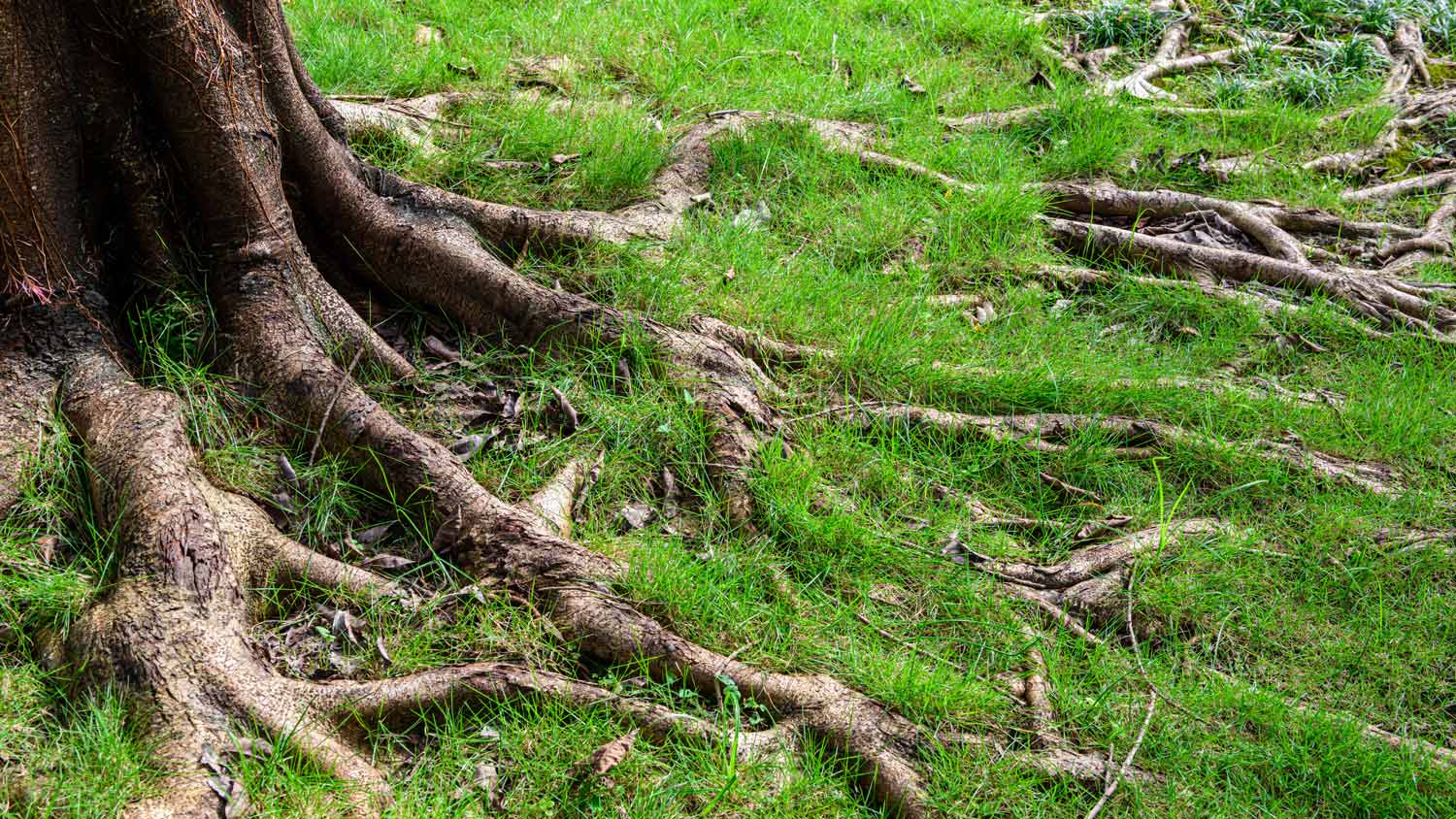
Similar to leaks in a sprinkler system, pesky root growth can be to blame for low water pressure. As time goes on, roots from trees, bushes, or shrubs can intrude on your irrigation system, causing cracks or obstructions in the line.
The Solution
Solving root issues depends on the size of the root and the severity of the leak. It could be as simple as cutting back the shrub’s roots and replacing the line. However, if the root is from a tree or other large growth, it may require expert assistance. Hire a sprinkler repair professional near you.
8. Local Water Woes
When you can’t find a reason for low water pressure on your property, try asking the neighbors.
If there’s been recent construction on water lines in your area, the low water pressure could be the fault of your municipality. It might not only be your home but your entire neighborhood or town experiencing low water pressure.
Similarly, you could be running the sprinkler system during high-use times, which could mean lower water pressure in a sprinkler zone.
The Solution
If your neighbors are having the same issue, reach out to your water provider to seek a solution. They will be able to confirm high-use hours so you can avoid them. If construction is the culprit, they can give you a timeline for completion.
When to Hire a Pro
If you’ve tried the methods above (or don’t have time to), hiring a pro can get your system back up and running at its best. If you’re experiencing other problems, such as high water bills or a lawn soaked in one area and dry in another, a local sprinkler repair pro can help.
The cost of a sprinkler repair ranges from $135 to $415. Getting your sprinkler fixed is money well spent because damaging your grass or paying a too-high water bill can be even more expensive.
Signs a Sprinkler Zone Has Low Pressure
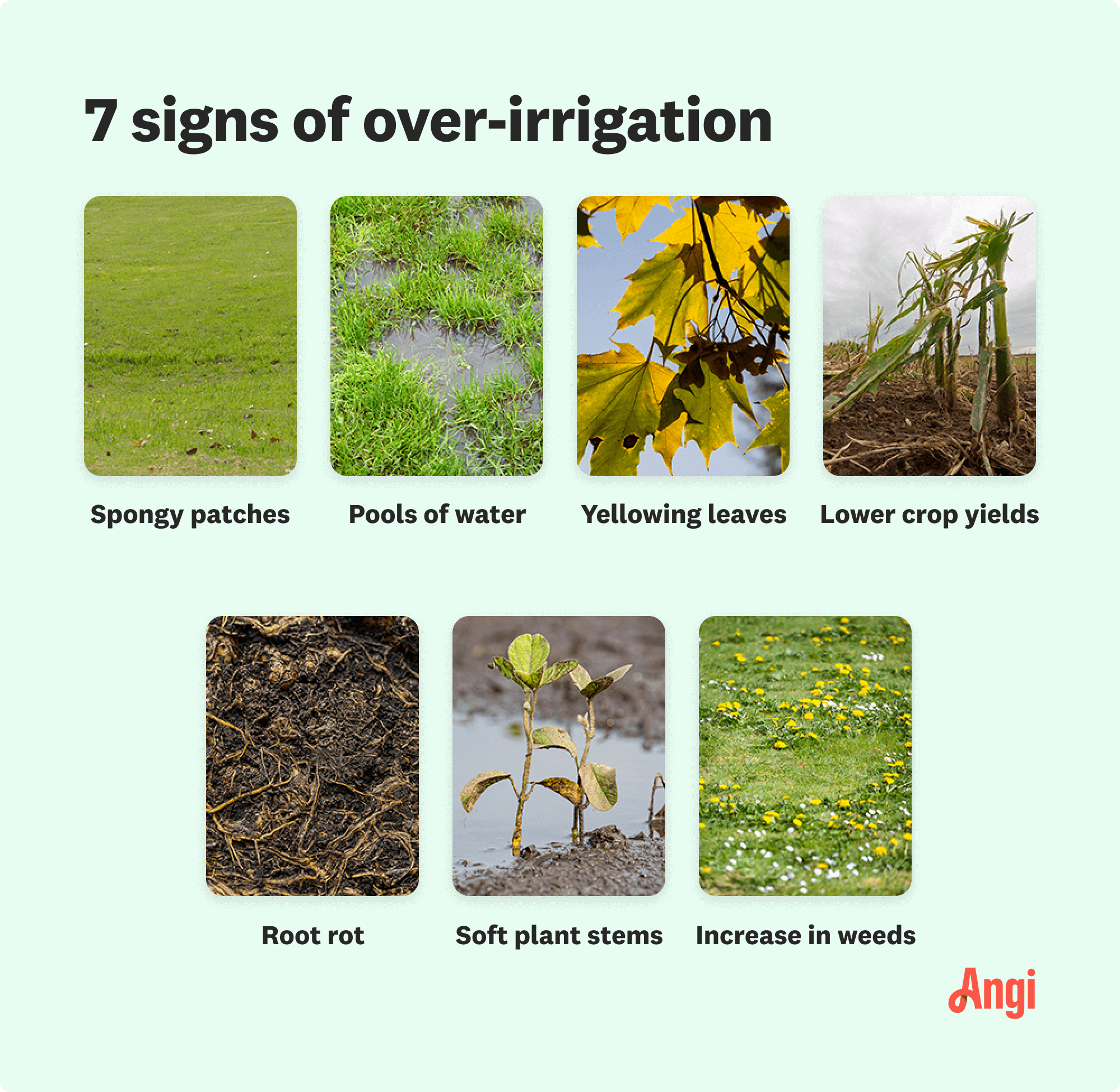
Not sure if water pressure is to blame for your sprinkler struggles? These are common signs of pressure problems.
Dying Grass or Plants
Notice dying grass or wilted plants in certain zones of your yard? This could be a sign that this area isn’t getting enough water, likely due to water pressure.
Other Zones Are Overwatered
Similarly, if one part of your yard is soggy or overwatered, it could be due to larger water pressure issues across the yard.
Frequently Asked Questions
To increase the water pressure in your desired sprinkler zone, start by inspecting the pressure regulator and making adjustments as necessary. Consider running a pressure test with the help of a local sprinkler professional to determine any slowdown spots in your system. You should also inspect sprinkler heads and look for leaks to ensure there aren’t any issues slowing down the system.
Yes, a faulty sprinkler solenoid can slow down your system’s water pressure. If this component of your sprinkler system is broken or malfunctioning, it’s likely the cause of your low or uneven water pressure woes. Consult a sprinkler repair professional to repair or replace this essential part of your system.
There are several common causes of low water pressure in your sprinkler system, including clogged sprinkler heads and issues with your backflow preventer valve. Start by inspecting and cleaning your sprinkler heads to ensure they’re in working order and there aren’t any blockages. Then, check your backflow preventer valve to ensure it’s open. If you spot damage to it, hire a sprinkler pro to repair or replace it.
If one or more sprinklers don’t pop up when the system is turned on, there’s likely an issue with the sprinkler valve. This essential part controls the water flow to each sprinkler head, so if it’s broken or malfunctioning, it can throw a wrench into your entire watering operation. Fix faulty sprinkler heads or hire a sprinkler professional to replace sprinkler heads quickly.
